The Fathers’ Schools in Senegal
In the remote villages of southeast Senegal, the once-prevalent tradition of female genital mutilation, or FGM, is being replaced by a radical movement of resistance led by local men.
This profound cultural shift among husbands, fathers, and religious leaders of all generations is due in part to community Fathers’ Schools, promoting education, health, and equality for girls.
Bamba, 56, is a member of the Father’s School in his village. Image credit: Plan International / Sylvain Cherkaoui.
“My dad was the one who told me not to accept FGM,” says teenager Fatou, 16 (pictured left with her father).
“He also said that if I ever see or hear of a girl in my community being cut, I should come and tell him, so we can file a complaint against the person and report them to the gendarmerie.”
Fatou, 16, dances to the rhythm of her father playing the tam tam. Image credit: Plan International / Sylvain Cherkaoui.
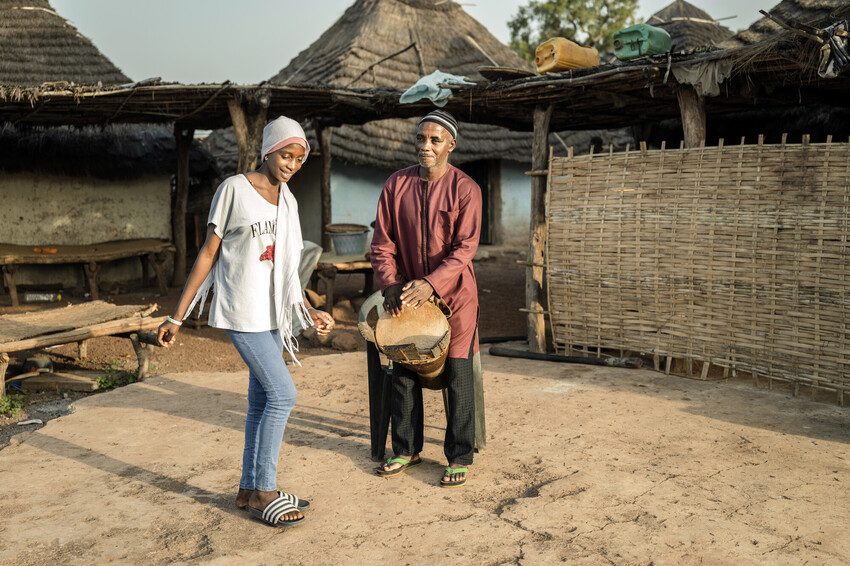
In three small villages in southeastern Senegal, near the borders with Mali and Guinea, some 700 kilometres from bustling Dakar, a significant cultural revolution is taking place – quietly, firmly, led by fathers and husbands who believe that some ancient traditions no longer have a place in the modern world.
As a result, the practice of FGM, or the genital mutilation of girls, has largely died out in these villages, replaced by an enthusiastic drive to send girls to school.
Harmful traditions are being replaced
Traditional cutters, known as bardiéli in local language, Pulaar, and numou nusso in Diakhanké, are out of work. Grandparents and parents are convinced that old traditions no longer stand, and village festivities in which newly cut girls were brought soap, money, and cloths have stopped.
The radical, deep-seated cultural change is largely put down to the awareness-raising activities of Fatou’s dad and his counterparts – all members of the local Ecole de Pères, or Fathers’ School.
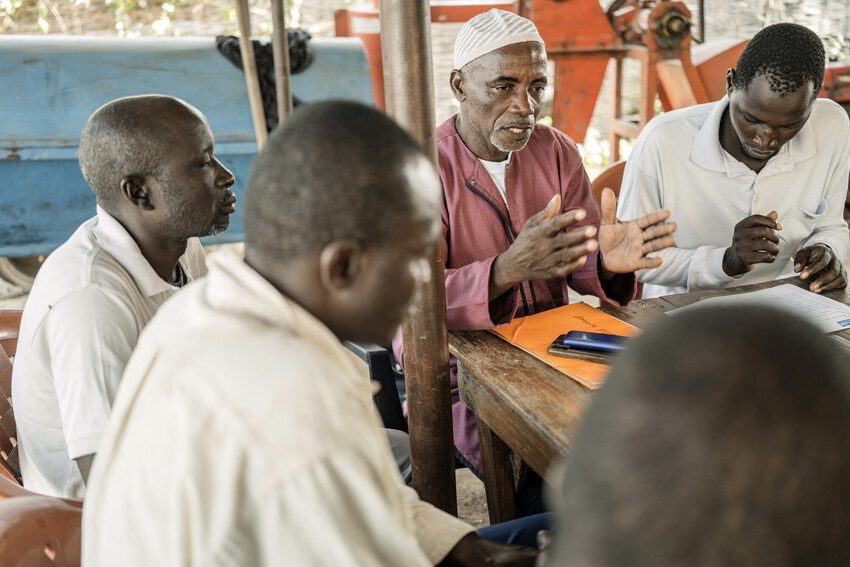
Bamba, 56, a farmer, griot*, radio presenter, and Fatou’s dad, is a longstanding member of the Fathers’ School, which was established five years ago by Plan International and its partners to facilitate discussions for men about girls’ rights, equality, education, and the harmful effects of FGM.
And Bamba says real change has happened, and is happening, thanks to the Fathers’ School. “Before, men saw a girl who wasn’t cut as a girl without value,” he says. “She couldn’t have a boyfriend or a husband, so she would complain to her parents to be cut. Men of my generation wouldn’t date a girl who wasn’t cut.”
“At the time, I also thought it was normal for a girl to be cut; it had to be done. If the girls were 10 years old, we informed the village that such a day would be FGM day, and it was celebrated. If it wasn’t done, it was a shame for the girl.”
Bamba, 56.
In total, there are 311 members of the Fathers’ School who, through their activities, have reached more than 20,000 people in the Kédougou region of Senegal.
Nathalie Coly, Coordinator of the GirlEngage Senegal project in Senegal, says: “The Fathers’ School is a framework for fathers’ engagement with and for their daughters. It’s a space for discussion, decision-making, and action in promoting the rights of young girls, and to encourage behavioural change among fathers and guardians at the community level, regarding gender-based violence, especially child marriage and female genital mutilation.
Influential community figures are speaking out
Huguette Sossouhounto, Plan International’s Head of Programming and Influencing in Senegal, adds: “Through the Fathers’ School, family fathers, including influential community figures such as community leaders – neighbourhood or village chiefs, imams, etc – have advocated in their neighbourhoods or villages, to powerful effect.”
Fathers gather in a non-formal setting, explains Coly, with the aim of teaching their peers about behaviour within households, protecting their daughters from forms of violence, the importance of keeping girls in school, the harmful effects of child marriage, and female genital mutilation.
“These teachings or awareness sessions are conducted through discussions and home visits to families,” she adds, “focused on families, communities, or areas where the aforementioned practices prevail.”
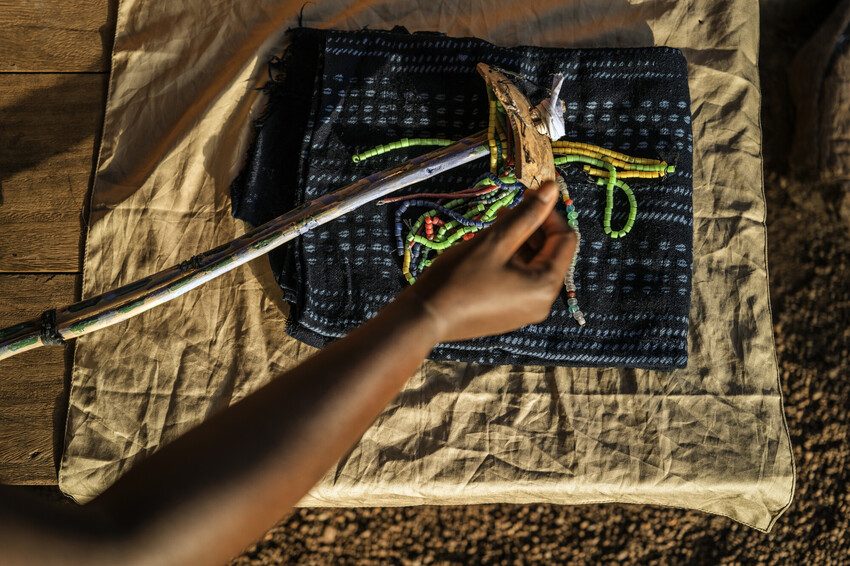
Bamba explains that in his day, girls themselves were not unwilling to be cut – many were cut at five or ten years old. The belief of his generation and those before it that FGM was a rite of passage, and a societal expectation, was deeply engrained in everyone, including the girls themselves:
“If a girl wasn’t cut, she would wonder why she hadn’t been cut like the others, and her mother would also complain. So she was willing.”
Abdourahmane, 56, is village chief here, and also a member of the Father’s School. He grew up in a world where all young girls were cut, without question.
“Girls over five years old were cut. Some did it secretly; they went to Guinea. In my generation, 10 out of 10 girls were cut.”
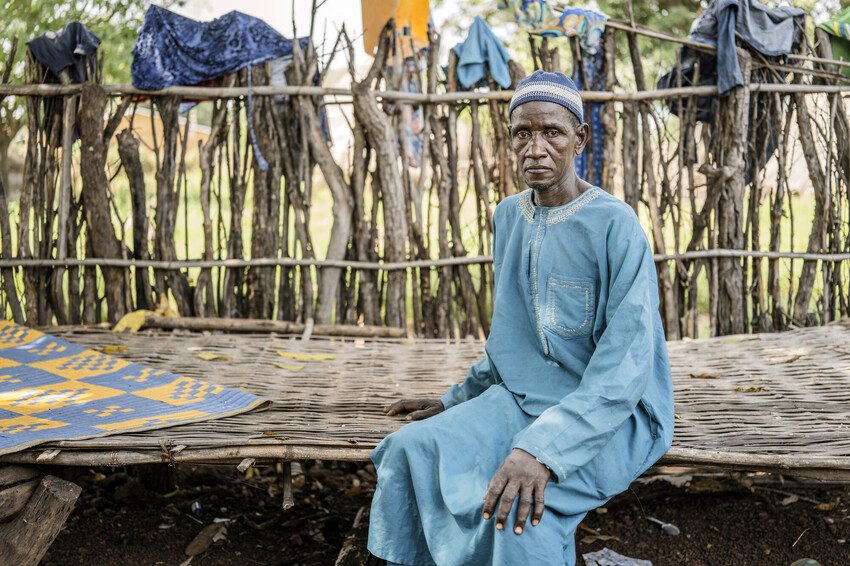
At first, Bamba’s decision to speak up against a deep-rooted cultural norm was unusual and difficult, he explains, because FGM was ‘a big secret’.
“Even among women, they didn’t discuss it. It was a myth reserved for a few people in the community. None of the girls dared speak about it.”
“FGM is like defying God.”
When broaching the subject with his family, Bamba would say a little and leave, he says. “Gradually, I returned to the topic, but this time in detail, explaining not to cut girls because FGM is like defying God. He is the one who created women.”
Over time, Bamba has established himself as a steadfast advocate against the practice of FGM, leading discussions at the Fathers’ School, and sharing messages by mobile phone and on his community radio show – as well as at village weddings, where, as a griot, he would be invited to speak.
“Many said I didn’t know what I was talking about. They asked if I was normal, saying there was nothing wrong with cutting a girl. But I never gave up, even when they said I didn’t know what I was talking about. Even when they said hurtful things, I endured it.
Bamba, 56.
“The next day, I returned to raise awareness again. I didn’t tire. I used opportunities, like when a woman had childbirth complications, to highlight the consequences of FGM – blood loss and other issues – and explained it was due to FGM.”
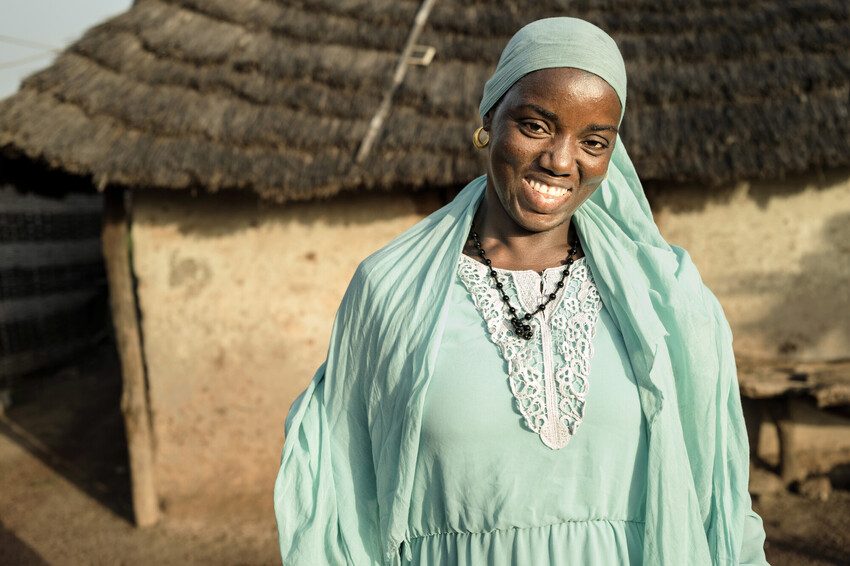
Bamba’s wife, Soumtou, 42, says she screamed when Bamba first showed her photos of these consequences.
“It was my husband who started the fight against FGM. In the community, everyone agrees with him and encourages his commitment. He is someone who is always listened to when he speaks.
Fatou’s mother, Soumtou, 42, is a local councillor and activist. Image credit: Plan International / Sylvain Cherkaoui.
“I am happy to see my husband involved in the fight against FGM in the village. We work together; he leads discussions held in the village and surrounding villages. He takes me along, and we defend the topic of FGM together, as a woman is better listened to when speaking about FGM.”
In total, there are 311 members of the Fathers’ School who, through their activities, have reached more than 27,278 people in the Kédougou region of Senegal.


